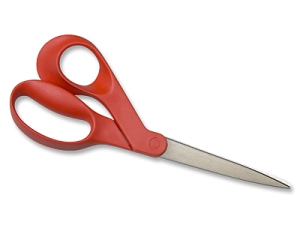When reading these posts, please remember that these ideas are something I’m attempting to work through, not something I am an expert in. Feel free to correct/comment on these works if you disagree or could clarify a point better. I would greatly appreciate the feedback!
The first time I heard that I read anything involving privilege, it pissed me off a little bit. I think it was Suzannah Paul’s post on privilege in the emergent church that started me down this rabbit hole. When I first read it (and a series of tweets between her and Jay Bakker and Peter Rollins), I was like “where does this girl come off calling these dudes privileged?” In a later post, I began to grasp the concept a little more, but for awhile, I was pretty hostile to the idea of privilege. Apparently, this happens all the time when people in such positions have this pointed out.
Having your privilege pointed out to you isn’t exactly fun. Often, people tend to react less than kindly, saying things like…
“If you knew where I grew up, you wouldn’t be saying that.”
“That’s not true! I worked hard to get where I am; it wasn’t just handed to me!”
“People who claim to be underprivileged are just looking for a handout!”
You get the idea.
Some of this is the fault of academia. Christian Lander, author of Stuff White People Like and Whiter Shades of Pale, said in an interview on the Homebrewed Christianity Culturecast that many academics have implied in their works that being white or being male invalidates anything you’ve ever achieved because you had it handed to you as a result of your privilege. There’s no delicate handling of the matter at all; in fact, it’s untrue. Privilege isn’t a matter of personal merit (or lack thereof) so much as it is a matter of having an advantage. You may have worked hard to get to where you are, and no one would deny that…but by virtue of your skin color and/or your gender (or class, religion, sexual orientation, etc.), you may have had some help in the matter. For example, I worked for the grades I needed to get into college, but it helped that I had the virtue of going to a Christian college looking for Christians to enroll there. My parents co-signing my loans to go to college was easily accepted because they had the collateral to back it up. Now, they worked hard to get that collateral over those years, but by virtue of being there, they had an easier time getting me a loan than someone who maybe had parents working minimum wage jobs to support their family.
All the same, hearing that you’re a privileged person is never easy. The problem here is that privilege is something you don’t notice unless you don’t have it. A good example here is left-handed scissors; right-handed people aren’t going to think about being right-handed as much as left-handed people think about being left-handed because society tends to make products for right-handed people. White people don’t think about being white as much as a black person thinks about being black because whites have held the positions of advantage in our society in the past and in the present.
What many people who talk about privilege try to do is to get privileged peoples to think about the fact that they are privileged, that many things in society are geared toward them because of their position in history. Throughout history, men (white men in particular) have held the positions of power, so things like laws, traditions, rights, and preferences have favored white males. This continues today, despite the presence to laws that have attempted to even the playing field for the inclusion of women and other races. Where we stand today can be best illustrated by a 100 meter dash. Until recently, only white males could even participate in the race. Since then, we’ve begun to include others in the race, but white males still have a head start on other participants as a result of systemic prejudices and biases still in existence. The gun might go off and everyone starts the race at the same time, but it’s still not a fair race because the white guy had a head start.
This doesn’t make every white man a racist or a sexist, but it does mean that undercurrents of racism and sexism still exist, and need to be stopped, and this means people of privilege have to sacrifice, which is where the second part of hostility comes in. People with positions of privilege often do not, and will not, want to give it up. This is why people like Martin Luther King and the suffragists had to fight so hard for the rights they wanted; the men in privilege did not want to give up the exclusive access they had because of these rights. While these rights (voting, integration, etc.) are now on the law books as available to all, other areas of society have yet to allow access to the underprivileged. The glass ceiling for women employees is a fine example, as well as the fact that only 2% of C-Level employees nationwide are women. We still have to work hard to eliminate these systemic oppressions, but it means for people of privilege have to give up those privileges and accept the new faces they’ll see sitting on the bus with them.
